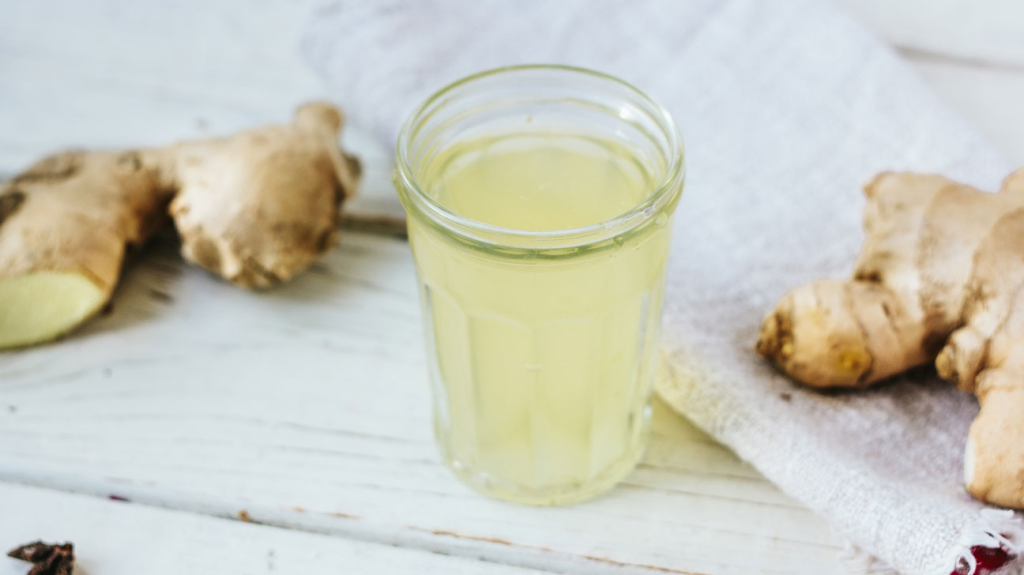Ginger, known scientifically as Zingiber officinale, has been a staple in traditional medicine and culinary practices for centuries. With its unique blend of potent bioactive compounds, ginger offers an array of health benefits that extend beyond its flavor-enhancing properties. This article delves into the remarkable health and immune-boosting benefits of ginger, exploring how this powerful root can enhance your overall well-being.
How to Use Ginger for Digestion?
Ginger’s natural enzymes help relieve indigestion, nausea, and bloating, promoting overall digestive health. There are many ways to make use of ginger’s digestive properties, like adding fresh ginger to meals, brewing tea with ginger, or ingesting ginger-infused lozenges or candies, to name a few.
How Much Ginger Should I Eat Daily?
It is generally recommended to consume up to 3–4 grams of ginger per day to get the most benefit from its health benefits, such as reducing nausea and inflammation. However, individual tolerance and personal health goals and cases, like pregnancy or other health-related concerns, should be considered.

Ginger Benefits
1. Anti-Inflammatory Properties:
Inflammation is a natural response to injury or infection, but chronic inflammation can lead to various health problems, including arthritis, cardiovascular diseases, and certain cancers. Ginger contains gingerols, shogaols, and paradols, compounds that have significant anti-inflammatory effects. Regular consumption of ginger can help manage chronic inflammation, providing relief from conditions such as osteoarthritis and rheumatoid arthritis. Studies have shown that ginger supplementation can reduce inflammatory markers in the body, improving joint function and reducing pain.

2. Immune System Support
Ginger is renowned for its immune-boosting properties, making it an excellent natural remedy for preventing and combating illnesses. Its antibacterial, antiviral, and antifungal properties help protect against pathogens, reducing the risk of infections. Ginger also stimulates the production of white blood cells, enhancing the body’s ability to fight off invaders. Drinking ginger tea or incorporating fresh ginger into meals can help bolster your immune system, especially during cold and flu season.

3. Digestive Health Enhancement
Ginger has been traditionally used to promote digestive health. It stimulates saliva, bile, and gastric enzyme production, aiding in the efficient breakdown of food and absorption of nutrients. Ginger can also alleviate gastrointestinal discomfort, such as bloating, gas, and indigestion. Its carminative properties help in expelling gas from the digestive tract, providing relief from bloating. Additionally, ginger can enhance gut motility, preventing constipation and promoting regular bowel movements.
4. Effective Nausea Relief

Ginger is widely recognized for its ability to relieve nausea and vomiting. It is particularly effective in treating morning sickness during pregnancy and nausea induced by chemotherapy. Ginger works by speeding up the emptying of the stomach, which can help reduce feelings of nausea. Clinical studies have demonstrated that ginger supplements can significantly reduce the severity of nausea in pregnant women and patients undergoing chemotherapy. Consuming ginger tea or ginger candies can provide quick relief from nausea.
5. Alleviating Muscle Pain and Soreness
Athletes and individuals who engage in regular physical activity can benefit from ginger’s ability to reduce muscle pain and soreness. Its anti-inflammatory and analgesic properties help alleviate pain and speed up recovery. Research has shown that consuming ginger can reduce exercise-induced muscle soreness by up to 25%. This makes ginger a valuable natural remedy for post-workout recovery. Adding ginger to your post-exercise routine can help you recover faster and reduce muscle pain.
6. Blood Sugar Regulation
Ginger may have anti-diabetic properties, as some studies suggest it can help regulate blood sugar levels. It can improve insulin sensitivity and reduce markers of diabetes. For individuals with type 2 diabetes, incorporating ginger into their diet can help manage blood sugar levels more effectively. Ginger’s ability to enhance insulin function and increase glucose uptake by the cells makes it a beneficial addition to a diabetes management plan. Regular consumption of ginger can help prevent spikes in blood sugar levels and promote overall metabolic health.

7. Cardiovascular Health Benefits
Ginger supports cardiovascular health by improving blood circulation, reducing cholesterol levels, and preventing blood clots. Its anti-inflammatory properties help reduce the risk of heart disease by lowering blood pressure and improving overall heart function. Ginger also helps in reducing LDL cholesterol levels and increasing HDL cholesterol levels, which can prevent the buildup of plaque in the arteries. This, in turn, reduces the risk of atherosclerosis, heart attacks, and strokes. Including ginger in your diet can contribute to a healthier heart and better cardiovascular health.
8. Rich in Antioxidants
Antioxidants are essential for protecting the body from oxidative stress and free radical damage, which can lead to chronic diseases and aging. Ginger is rich in antioxidants, which help neutralize harmful free radicals and protect cells from damage. This antioxidant capacity of ginger can slow down the aging process and reduce the risk of chronic diseases such as cancer, heart disease, and neurodegenerative disorders. Regular consumption of ginger can enhance your body’s natural defense mechanisms and promote overall health and longevity.

Incorporating Ginger into Your Diet
- Ginger Tea: Steep fresh ginger slices in hot water for a soothing and immune-boosting tea. You can add honey and lemon for additional flavor and health benefits.
- Smoothies: Add grated ginger to your favorite smoothie recipes for an extra kick of flavor and health benefits. Ginger pairs well with fruits like mango, pineapple, and banana.
- Cooking: Use ginger in stir-fries, soups, and marinades to enhance the flavor and nutritional value of your meals. Ginger complements both savory and sweet dishes.
- Ginger Supplements: If you prefer, you can take ginger supplements in capsule form to ensure you get a consistent dose of its health benefits. Always consult with a healthcare provider before starting any supplement regimen.
Ginger is a versatile and powerful root that offers numerous health benefits, particularly for the immune system. Its anti-inflammatory, antimicrobial, and antioxidant properties make it a valuable addition to any diet. By incorporating ginger into your daily routine, you can enhance your health, boost your immune system, and enjoy the many therapeutic benefits this remarkable spice has to offer.


